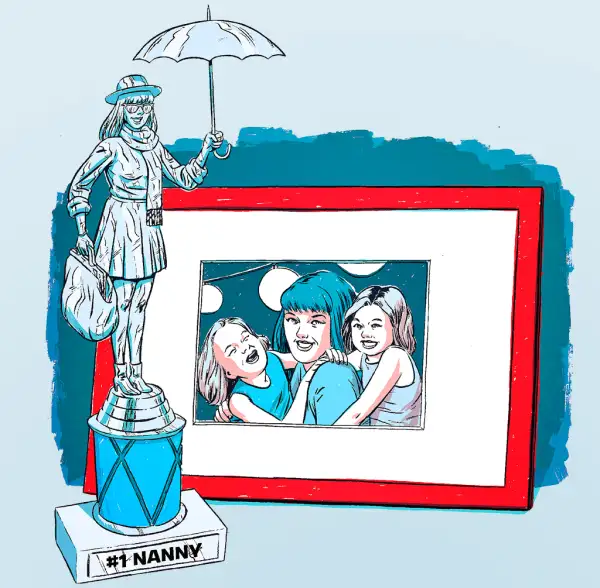The Ultimate Baby Monitor

By my rough calculations, the tab ran to $234,000. We didn't pay it all at once, of course. The initial bill was $15 an hour, plus the occasional lunch. It still felt like a lot, even for our two-income family. But when you have the same nanny from before your children can talk until—sadly—they don't need to be watched anymore, the money seems almost beside the point.
The priceless nanny—it's beyond a cliché, I know. And to those working parents who struggle to pay for the day-care bill every week, it sounds like an indulgence. Yet all parents agonize to some degree about when to splurge on the kids and when to scrimp, whether you're shopping for strollers or shoes or organic baby food. The truth is, a nanny was a sacrifice, born out of jobs with crazy hours (editing a magazine and running a small business) and no family to lend a hand.
Still, it seems odd to think about a nanny in financial terms. You're paying her to do a job, of course. But what you really want is for her to fall in love.
We hired Gaya (as she came to be called via garbled babyspeak) when she was 19. Of all the women we interviewed, only she asked to meet our sleeping baby girl. She had the instincts of a real Mary Poppins. She also had tattoos.
We knew we'd made the right choice when our upstairs neighbor revealed one day that her baby monitor's frequency occasionally got crossed with ours. Then she told me what she could overhear in our apartment: lots of talking, giggling, and kissing. "You know," the woman said with a tinge of jealousy, "your babysitter really loves your daughter."
Needless to say, we would do anything for Gaya. Raises, paid time off—we gladly took staycations so Gaya could have time away.
What was harder was when, after eight years with us, Gaya's life began to change. One night she pulled me aside, clearly anxious. Finally, she blurted it out: She was pregnant. Our years together were down to the final months.
But only in the day-to-day sense. Our daughters, now 10 and 12, have grown into lovely young ladies, thanks in no small part to the care and devotion Gaya poured into them. Clearly, that's an investment that will pay dividends forever.
Do you have a purchase you consider Money Well Spent? Email us about it, and what it means to you, at wellspent@moneymail.com.
Marc Peyser is a Money editor-at-large and co-author of Hissing Cousins: The Story of Eleanor Roosevelt and Alice Longworth.